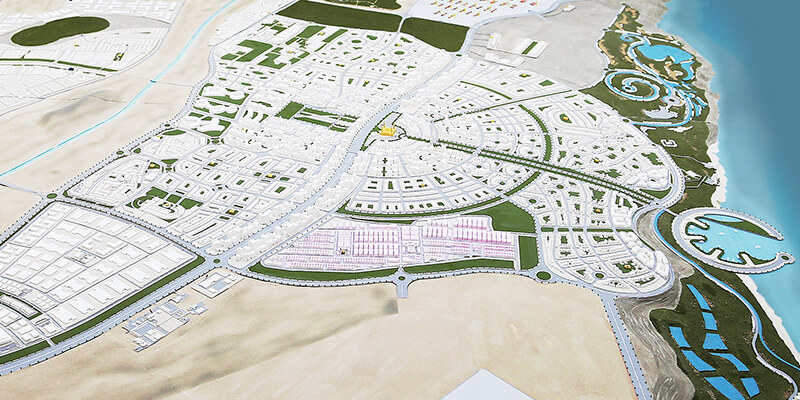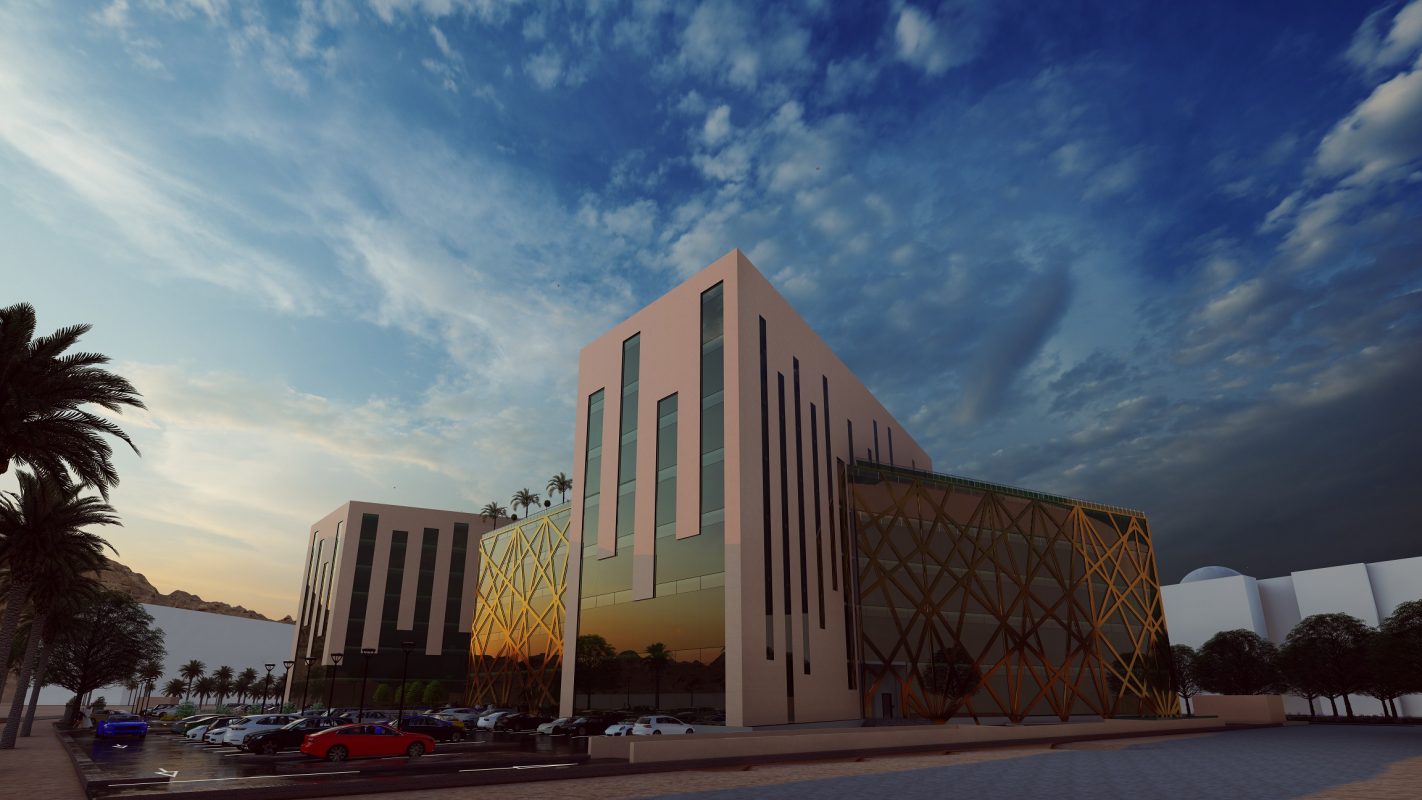For this edition in our series on key legal developments and their practical implications, we extend our gratitude to our member Mussadak Mirza, Barrister at Cobden House Chambers and UK Lead at the Omani British Lawyers Association (OBLA).
Mussadak uncovers real opportunities emerging from the new Law of Special Economic Zones and Free Zones in Oman’s evolving legal and economic landscape as we head towards achieving Oman Vision 2040.
What are Special Economic Zones and Free Zones in Oman?
These are geographically defined business areas that offer benefits to companies operating in them, including 100% foreign ownership, exemptions from tax, customs, and duties, low capital investment requirements, lower quota requirements for hiring Omani nationals and simplified administrative procedures.
Each zone is situated in strategic locations across Oman with access to important trade routes. Each zone provides infrastructure and additional opportunities for specific sectors or industries. Companies setting up in these zones will be expected to carry out their business activities inside the zone.

Where are the Special Economic Zones and Free Zones?
There are two Special Economic Zones (SEZs):
- Duqm (“DSEZ”): Located on the east coast of Oman, about 550km from Muscat. DSEZ is the largest SEZ in the MENA region. DSEZ contains several sector-specific areas. It has a multi-purpose port, fishing port, dry-dock for vessel repairs and an airport. DSEZ offers opportunities for key sectors in logistics, tourism, fisheries, seaport and dry-dock activity, industry, education and training, with a major focus on attracting industrial investment.
- Muscat (Knowledge Oasis Muscat “KOM”): KOM is in Muscat and is considered to be Oman’s first 1 million square meter technology park. It is situated close to Muscat International Airport. KOM is a hub for technology-based businesses. KOM offers opportunities for digital, technology, IT and knowledge-based sectors.
There are three Free Zones (FZs):
- Sohar Port and Free Zone (“SPFZ”): Situated in the industrial and port city of Sohar, in the North of Oman between Muscat and the border with the United Arab Emirates. SPFZ is at the centre of important global trade routes. SPFZ is a hub for plastics, metals, minerals, food, petrochemicals, manufacturing and assembly, automotive and textiles, logistics and service sectors.
- Salalah Free Zone (“SFZ”): Located near the Port of Salalah, a city in the South of Oman near the border with Yemen. SFZ is close to the port of Salalah and Salalah International Airport. SFZ is a major industrial and investment hub, particularly for manufacturing, food, chemicals, renewable energy, pharmaceuticals and logistics.
- Al Muzanah Free Zone (“AFZ”): Located near the Yemen border and focuses on commercial, service, and industrial sectors. AFZ is known as a "Gulf gateway" for trade and transport. AFZ offers opportunities for key sectors in general commerce, industry and services. Yemeni nationals can work in AFZ without a work visa and there is approval of Yemeni customs for goods imported from Yemen.
The Old Law of Free Zones
Previously, Royal Decree 56/2002 governed business activities in the FZs and Royal Decree 119/2011 governed operations in DSEZ. As such, different regulations and processes applied to the FZs and DSEZ. Further, benefits such as tax exemptions granted for FZs and DSEZ were also different.
The New Law of Special Economic Zones and Free Zones
In April 2025, the new Law of Special Economic Zones and Free Zones (Law) was issued (Royal Decree 38/2025), which repeals the previous free zones Law. This new Law creates a comprehensive legislative framework that regulates and streamlines business operations in SEZs and FZs, while providing enhanced incentives for investors
Aims
The Law aims to foster a conducive investment environment, enhance economic development, attract increased local and foreign direct investments, diversify economic fields and income sources, generate further job opportunities and support small and medium-sized enterprises (SMEs).
It aims to streamline regulatory processes, monitor investments, unify regulations to boost investor confidence, simplify procedures through a one-stop-shop service to expedite transactions for approvals, permits and licensing, standardise and unify benefits and incentives, offer additional benefits for strategic projects and link tax exemptions to economic achievements. This in turn will make it easier to conduct business in Oman.
Furthermore, it aims to regulate real estate development projects within these zones, promoting lifestyle and economic activities linked to residential and tourism sectors, contributing to urban and economic growth
Key Provisions
- Effective Date: The Decree was published in the Official Gazette on 7 April 2025, and came into force on 8 April 2025. Executive regulations will be issued by April 2026 and will provide further guidance on the implementation of the law.
- Executive Regulations: The Chairman of the Public Authority for Special Economic Zones and Free Zones (OPAZ) has one year from 7 April 2025, to issue the executive regulations. During this transitional period, existing regulations will continue to apply to the extent they do not conflict with the new Law.
- Protection of Existing Rights: Existing operators and companies within SEZs and FZs will retain their existing privileges, incentives, exemptions, and guarantees until their respective agreements or terms expire. This ensures continuity and stability for ongoing operations as Oman looks to the future.
Implications for Businesses
The framework builds on the incentives that were previously available to attract greater foreign direct investment and support economic diversification:
- Corporate Tax: the Law provides for 10-year tax exemption for all taxes levied by the Oman Income Tax Law to qualifying enterprises established in SEZs and FZs.
- This exemption can be extended for two additional periods for activities deemed of special nature (i.e. those offering significant added value, contributing to innovation and development). The criteria and procedures for obtaining this exemption will be detailed in the upcoming Executive Regulation.
- The exemption is not applicable to banks, financial institutions, insurance or reinsurance companies, telecommunication service providers, contracting companies, or businesses in the road transportation and maritime transportation domains in SEZs and FZs.
- Customs: the Law includes provisions that a customs department within the SEZ must be established to streamline import and export processes, lower operational costs through faster customs clearance, support integrated logistics zones, and maintain strict customs control to enhance the investment environment
- A customs directorate must be set up within each SEZ to oversee the movement of goods. The customs management system, coordinated with the Royal Oman Police, will ensure efficient inspection, examination and release procedures
- In particular, goods used in the construction and operation of enterprises within the zones are exempt from customs taxes and products exported from the zones are not subject to customs duties.
- Additionally, local and foreign goods can be temporarily admitted to and exported from the zones for repair or manufacture, adhering to specified conditions and procedures
- Real Estate: with respect to real estate, the Law provides for land allocation for real estate development through usufruct rights. Further, real estate developers are permitted to sell project units to non-Omanis under the freehold system, which allows buyers to fully and permanently own property
- General Administration: the Law also stipulates that all necessary services must be provided to the enterprise and the real estate developer, and the procedures for issuing approvals, permits, licenses, and certificates related to the practice of economic activities in the zones must be facilitated and simplified through a one-stop-shop service

Oman's Competitive Advantage
Oman maintains a competitive edge in the region due to its prime geographical location and favourable trade agreements, including Free Trade Agreements (FTAs). While the general corporate tax rate is 15%, the country’s participation in FTAs offer significant advantages to businesses operating within its economic zones. These benefits include reduced tariffs and streamline trade processes, making Oman an attractive destination for international companies seeking to optimise their supply chains and reduce costs. Oman’s existing trade benefits and strategic position continue to make it an appealing location for multinational corporations looking to establish operations in the Middle East, particularly those seeking to leverage Oman’s proximity to key regional and international markets and its role in trade networks.
Conclusion
For foreign investors considering establishing a business in Oman, the SEZs and FZs offer an attractive option. The choice of the zone will ultimately be down to many factors including location, access to trade and supply routes, industry/sector clusters inside the zone, and the incentives offered. The new Law will enhance economic development in various sectors, attract greater foreign direct investment and streamline regulatory processes. It is an important development in the modernisation of Oman’s legal framework governing SEZs and FZs in advancing the strategic goals of Oman Vision 2040.


Mussadak Mirza
Barrister, Cobden House Chambers
UK Lead, Omani British Lawyers Association (OBLA)